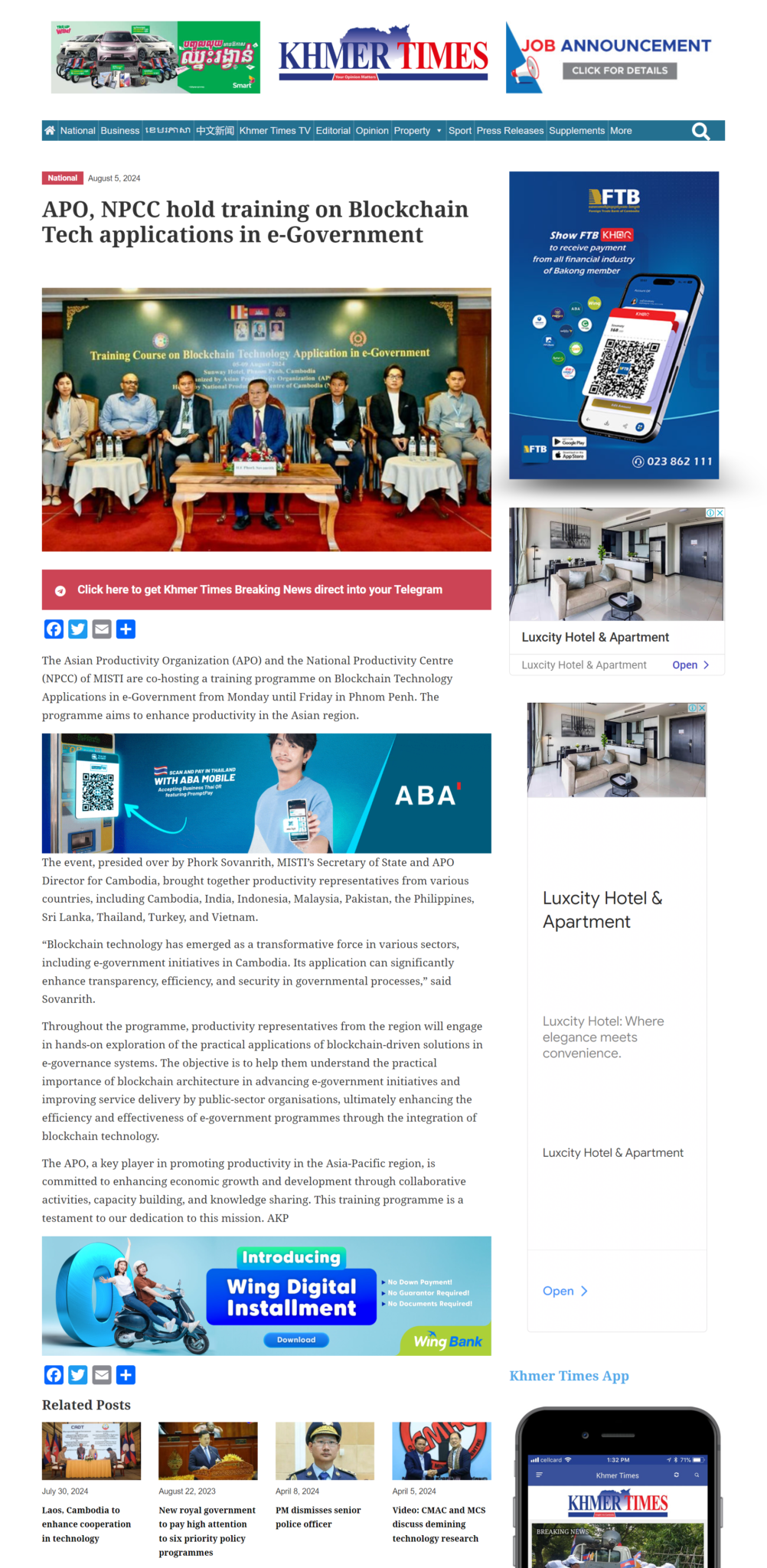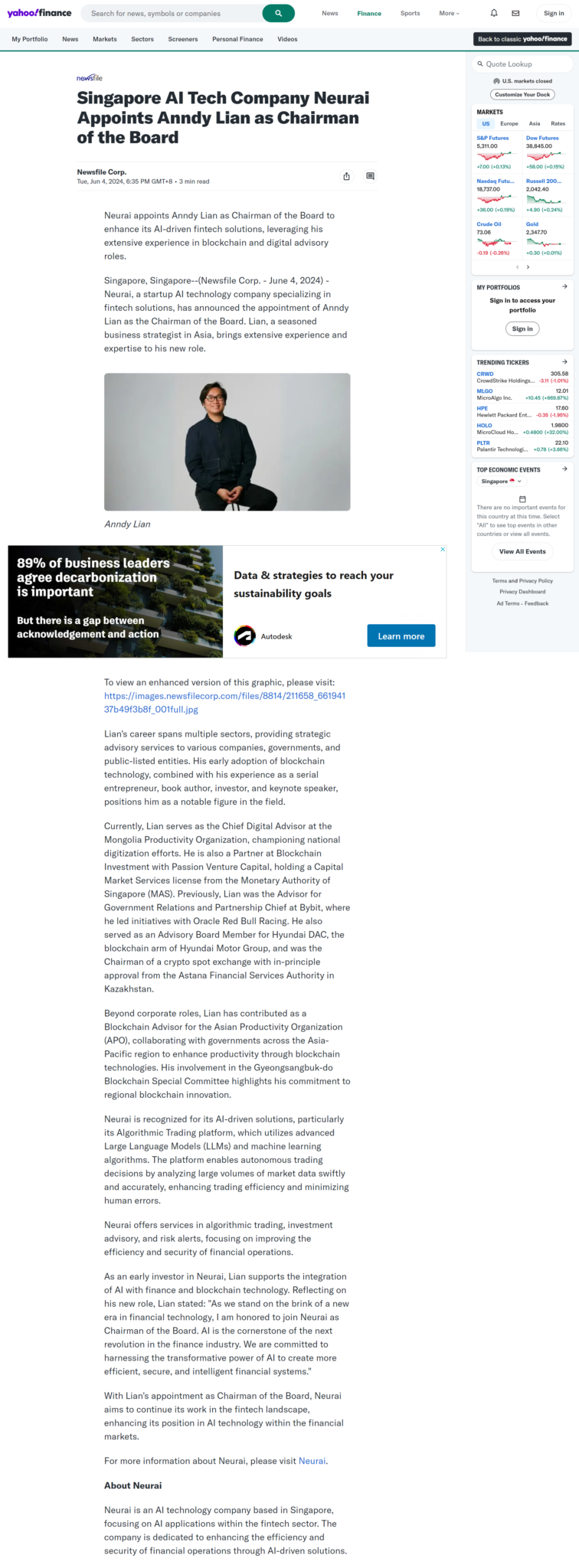The APAC region is a hub of technological innovation, with trends like artificial intelligence, blockchain, cryptocurrency, electric vehicles, and autonomous driving shaping the future. These technologies are not only transforming industries but also creating new opportunities and challenges.
The Asia-Pacific (APAC) region has become a significant player in the global tech landscape, setting trends that are transforming industries and societies worldwide. Having observed the tech industry closely over the years, it’s clear that APAC is not just keeping up with global developments; it is often at the forefront.
From artificial intelligence to autonomous driving, the region is a hub of innovation, with five key tech trends leading the way into a new era of technological progress.
Artificial Intelligence: The rise of Grok AI
Artificial intelligence has moved from being a futuristic idea to a transformative force reshaping our daily lives and work environments. In APAC, AI is being adopted with great enthusiasm, and one of the most intriguing projects is Grok AI, led by Elon Musk. Grok AI aims to expand the capabilities of AI, focusing on creating systems that can understand and interact with humans in more advanced ways.
Elon Musk has suggested that his AI can interpret medical data, stating, “This is still early stage, but it is already quite accurate and will become extremely good,” in a post on X. Dr. Laura Heacock, an associate professor and breast radiologist at NYU Imaging, tested xAI’s Grok AI against the same set of breast imaging scans she used for benchmarking GPT-4. Her findings, shared through a series of 12 social media posts, were not favourable. Despite Grok’s ability to recognise basic imaging types like mammograms and ultrasounds, it failed to diagnose correctly in any instance. Heacock also concluded that Grok did slightly better than GPT-4 but still missed all diagnoses. From my perspective, this is a promising start.
Countries like China, Japan, and South Korea are heavily investing in AI, recognising its potential to drive economic growth and improve quality of life. China, in particular, aims to become a global leader in AI by 2030, leveraging its vast data resources and government support. Companies like Baidu are leading the way, making significant advancements in areas like natural language processing and autonomous driving. The impact of AI in APAC is profound, revolutionising sectors such as healthcare and finance by enhancing diagnostics, patient care, fraud detection, and customer service.
Blockchain: The power of decentralisation
Blockchain technology, with its promise of decentralisation and transparency, is captivating innovators and investors across APAC. Solana, a high-performance blockchain platform, stands out for its ability to process thousands of transactions per second at a low cost, attracting more users than many traditional Web2 companies. However, some argue about its level of decentralisation, which is a topic for another day.
There is a noticeable surge in blockchain-based startups and initiatives globally. Singapore, for example, has established itself as a hub for blockchain innovation, offering a supportive regulatory environment and a vibrant ecosystem of startups and investors. South Korea is exploring blockchain for various government services to enhance transparency and efficiency. The decentralisation offered by blockchain is particularly appealing in regions seeking more inclusive and equitable systems. As blockchain technology continues to evolve, its impact on industries and societies in the region is expected to grow.
Cryptocurrency: From bitcoin to mainstream adoption
Cryptocurrency, closely linked to blockchain, has rapidly moved from the fringes to the mainstream, with Bitcoin leading the charge. The APAC region has been at the forefront of this trend, with countries like Japan and South Korea embracing cryptocurrencies and blockchain technology. Bitcoin, the first and most well-known cryptocurrency, has seen its value soar, capturing the attention of investors and governments alike. In APAC, Bitcoin is increasingly viewed as a legitimate asset class, with some countries even considering establishing Bitcoin reserve funds. This shift in perception is exemplified by former U.S. President Donald Trump’s surprising support for Bitcoin, adding further legitimacy to the cryptocurrency.
Japan recognises Bitcoin as a legal form of payment and has a robust regulatory framework for cryptocurrency exchanges. South Korea also has a vibrant cryptocurrency market, with high public interest and government support for blockchain technology. The rise of cryptocurrency in APAC is not without challenges, such as regulatory uncertainty and concerns about security and fraud. Nevertheless, the potential of cryptocurrency to revolutionise finance and create new economic opportunities is undeniable, and APAC is poised to play a leading role in this transformation.
Electric Vehicles: The revolution led by Elon Musk and China
The electric vehicle (EV) revolution is well underway, with APAC at the heart of this transformation. Elon Musk’s Tesla has been a major catalyst for the EV movement, demonstrating that electric cars can be both desirable and practical. Tesla’s success has inspired a wave of innovation and investment in this sector, particularly in China. China, the world’s largest automotive market, is rapidly becoming a leader in electric vehicles. The Chinese government has set ambitious targets for EV adoption, offering subsidies and incentives to manufacturers and consumers. As a result, Chinese companies like BYD and NIO are emerging as major players in the global EV market.
The impact of electric vehicles extends beyond environmental benefits. The shift to EVs is driving innovation in battery technology, charging infrastructure, and renewable energy integration. Moreover, the growth of the EV market is creating new economic opportunities, from manufacturing to services. APAC’s commitment to electric vehicles is a testament to its forward-thinking approach to sustainability and innovation. As the world moves towards a greener future, the region’s leadership in the EV sector will be crucial.
Autonomous Driving: The future of transportation
Autonomous driving technology is set to revolutionise transportation, with APAC leading the way. Self-driving cars promise to enhance safety, reduce congestion, and transform the way we travel. Companies like Baidu and Hyundai are at the forefront of autonomous driving research and development. Baidu’s Apollo project, for instance, is one of the most advanced autonomous driving platforms globally, with partnerships spanning multiple countries and industries.
The potential of autonomous driving extends beyond personal vehicles. In the future, services like Uber could become driverless, offering a new level of convenience and efficiency. Many countries are already exploring autonomous public transportation solutions, with pilot projects in cities like Singapore and Tokyo. The road to fully autonomous vehicles is not always smooth sailing, including regulatory hurdles, technological limitations, and public acceptance. The progress being made in APAC is promising, and the potential benefits of autonomous driving are too significant to ignore.
Bottom Line
The APAC region is a hub of technological innovation, with trends like artificial intelligence, blockchain, cryptocurrency, electric vehicles, and autonomous driving shaping the future. These technologies are not only transforming industries but also creating new opportunities and challenges.
As the region continues to lead the way in tech innovation, it is crucial to address the ethical, regulatory, and societal implications of these technologies. By doing so, it can ensure that the benefits of technological advancement are shared widely and equitably. In conclusion, the tech trends dominating APAC are a testament to the region’s dynamism and potential. As these technologies continue to evolve, they will undoubtedly play a pivotal role in shaping the future of the global economy and society.

Anndy Lian is an early blockchain adopter and experienced serial entrepreneur who is known for his work in the government sector. He is a best selling book author- “NFT: From Zero to Hero” and “Blockchain Revolution 2030”.
Currently, he is appointed as the Chief Digital Advisor at Mongolia Productivity Organization, championing national digitization. Prior to his current appointments, he was the Chairman of BigONE Exchange, a global top 30 ranked crypto spot exchange and was also the Advisory Board Member for Hyundai DAC, the blockchain arm of South Korea’s largest car manufacturer Hyundai Motor Group. Lian played a pivotal role as the Blockchain Advisor for Asian Productivity Organisation (APO), an intergovernmental organization committed to improving productivity in the Asia-Pacific region.
An avid supporter of incubating start-ups, Anndy has also been a private investor for the past eight years. With a growth investment mindset, Anndy strategically demonstrates this in the companies he chooses to be involved with. He believes that what he is doing through blockchain technology currently will revolutionise and redefine traditional businesses. He also believes that the blockchain industry has to be “redecentralised”.




